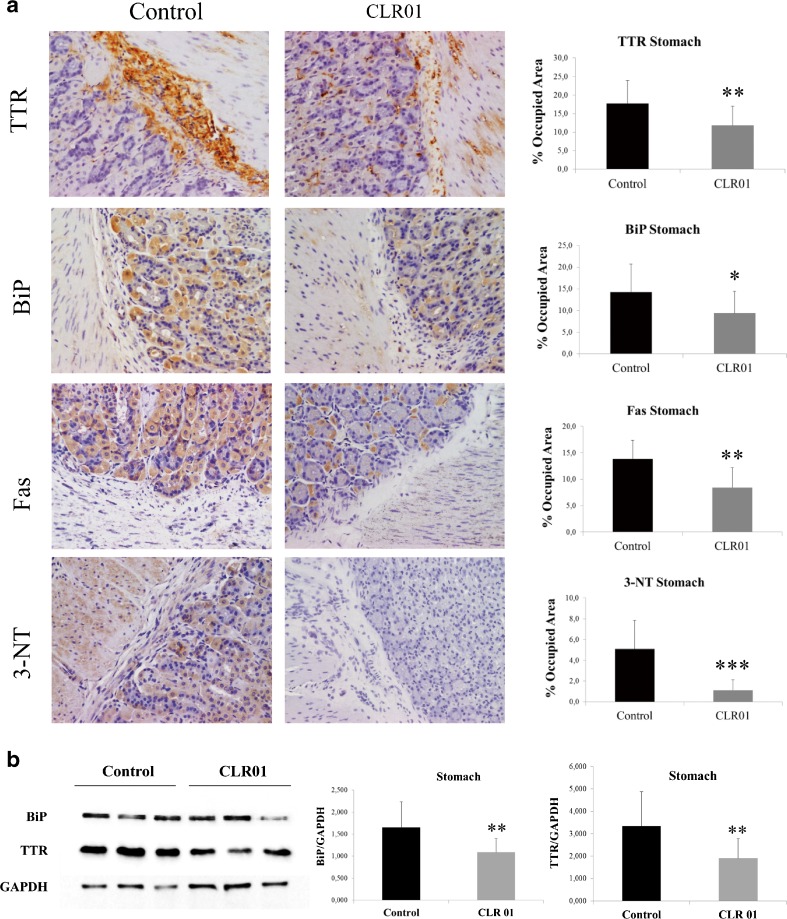Fig. 3.
CLR01 decreases transthyretin (TTR) burden and associated toxicity in the stomach of heat-shock transcription factor (HSF)-1–TTR V30M/HSF mice. (A) Representative immunohistochemistry analysis of TTR, binding immunoglobulin protein (BiP), Fas, and 3-nitrotyrosine in stomach of mice treated with CLR01 (right panels; n = 14) and age-matched controls (left panels; n = 12); 20× magnification. Bar graphs: quantification of immunohistochemical images is represented as percentage of occupied area ± SD (**p < 0.01; ***p < 0.005). (B) Representative anti-BiP and anti-TTR Western blots of stomachs from CLR01- and vehicle-treated mice. Bar graphs: normalized BiP/glyceraldehyde 3-phosphate dehydrogenase (GAPDH) and TTR/GAPDH density quantifications ± SD (*p < 0.05; **p < 0.01)

